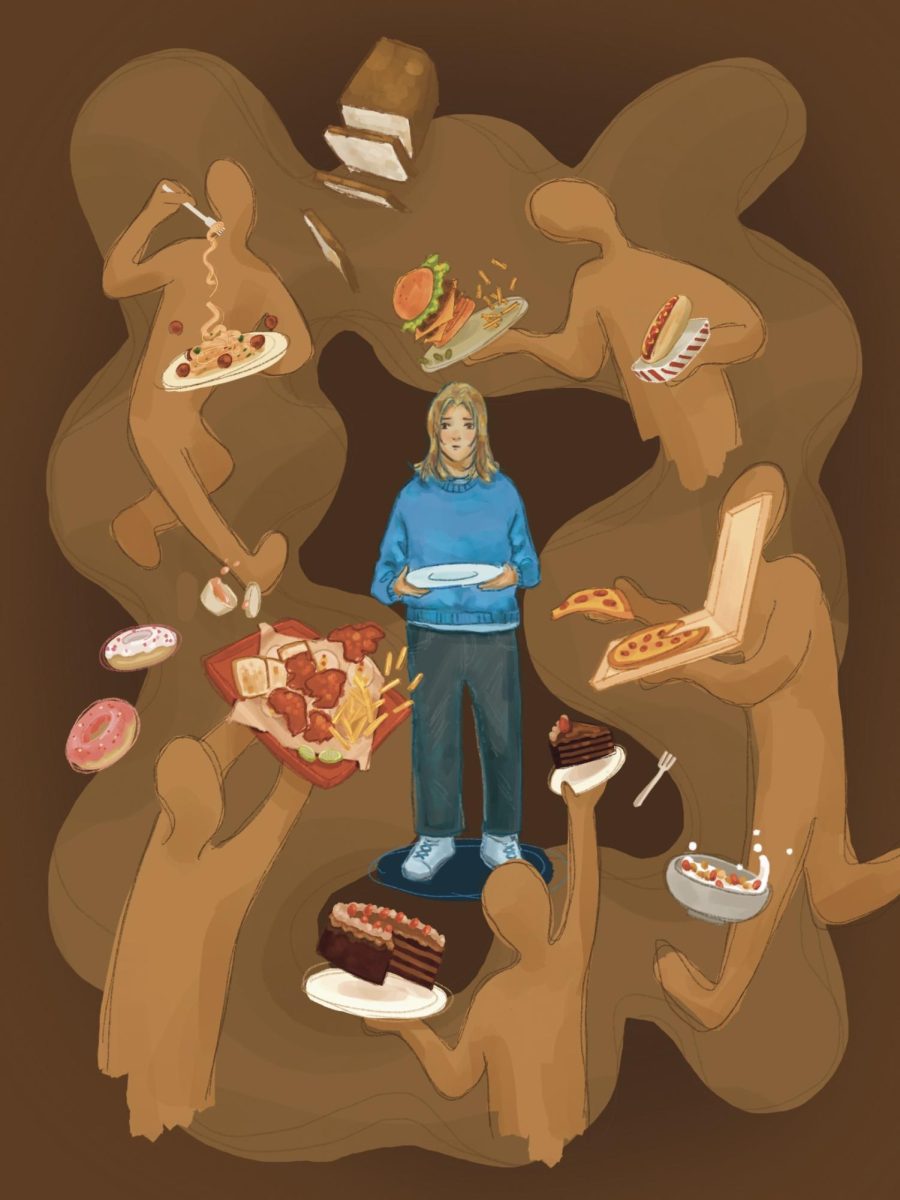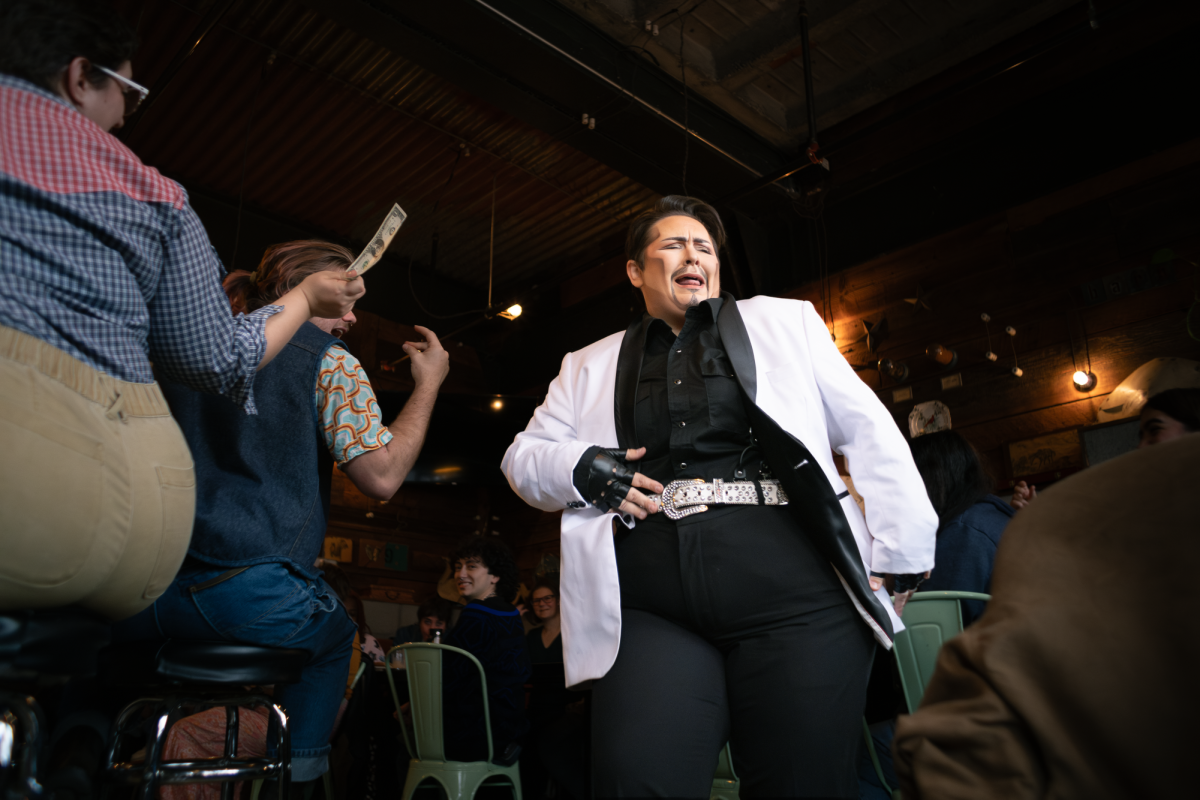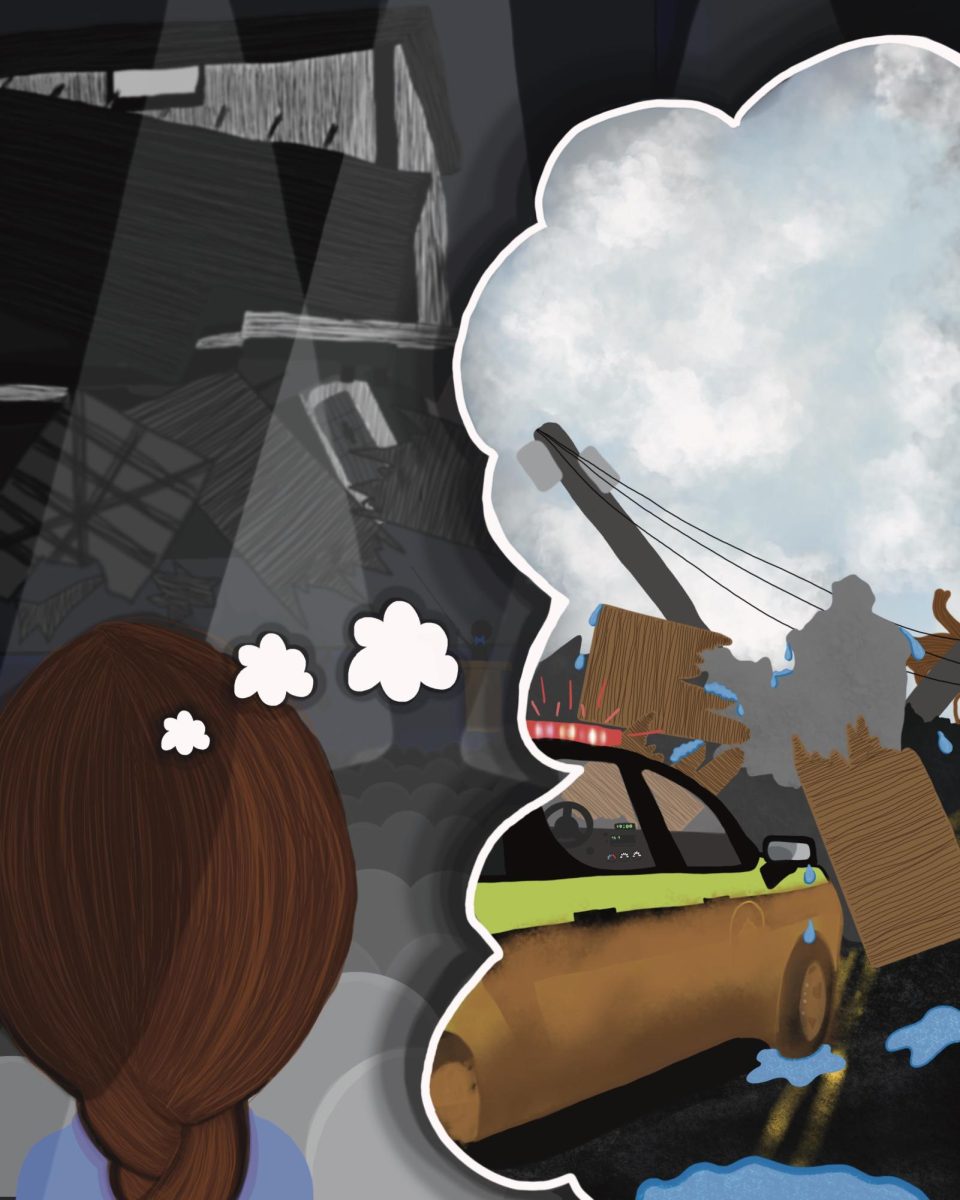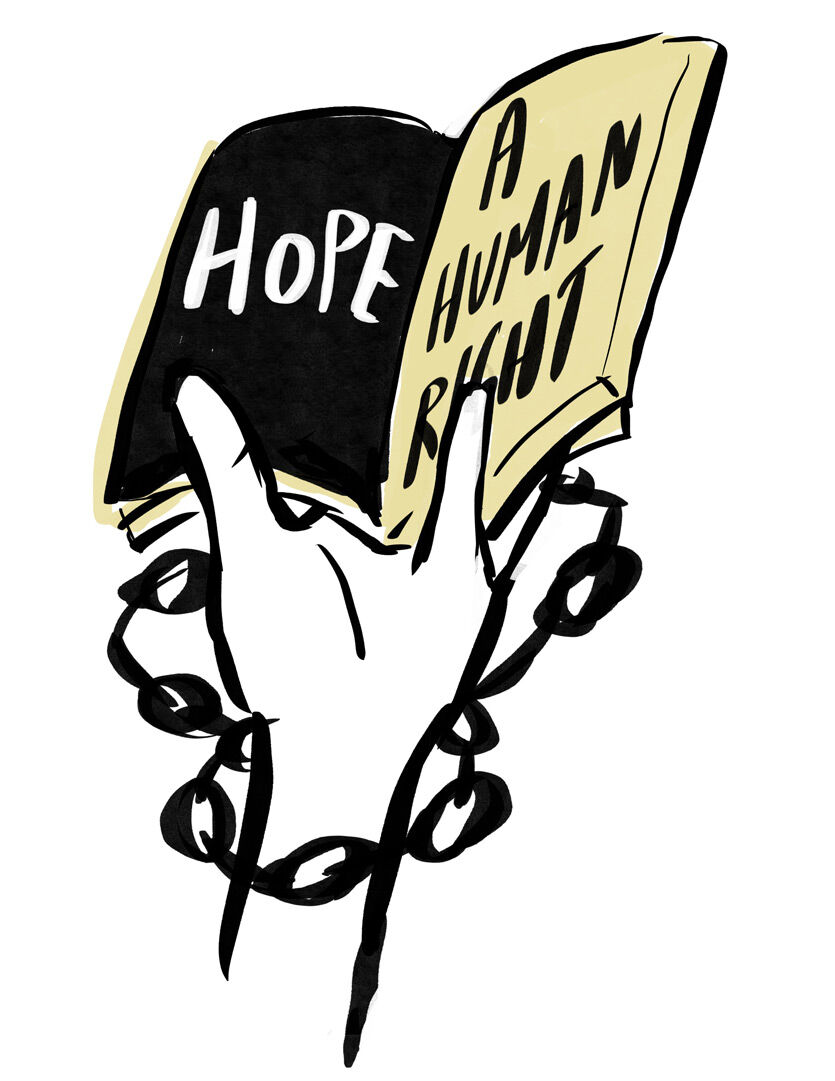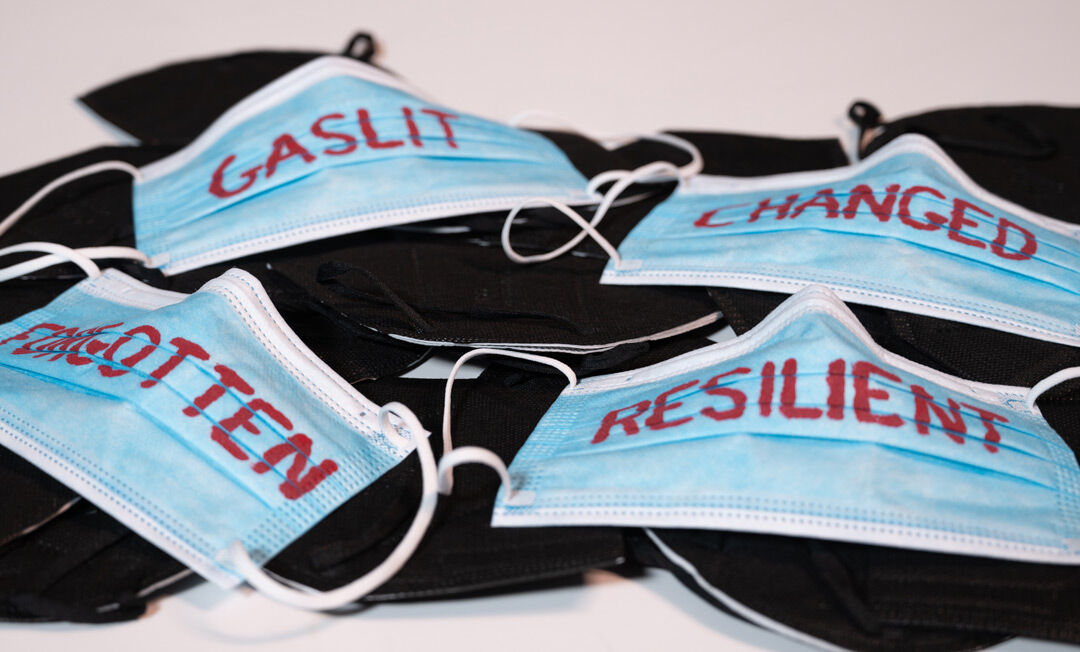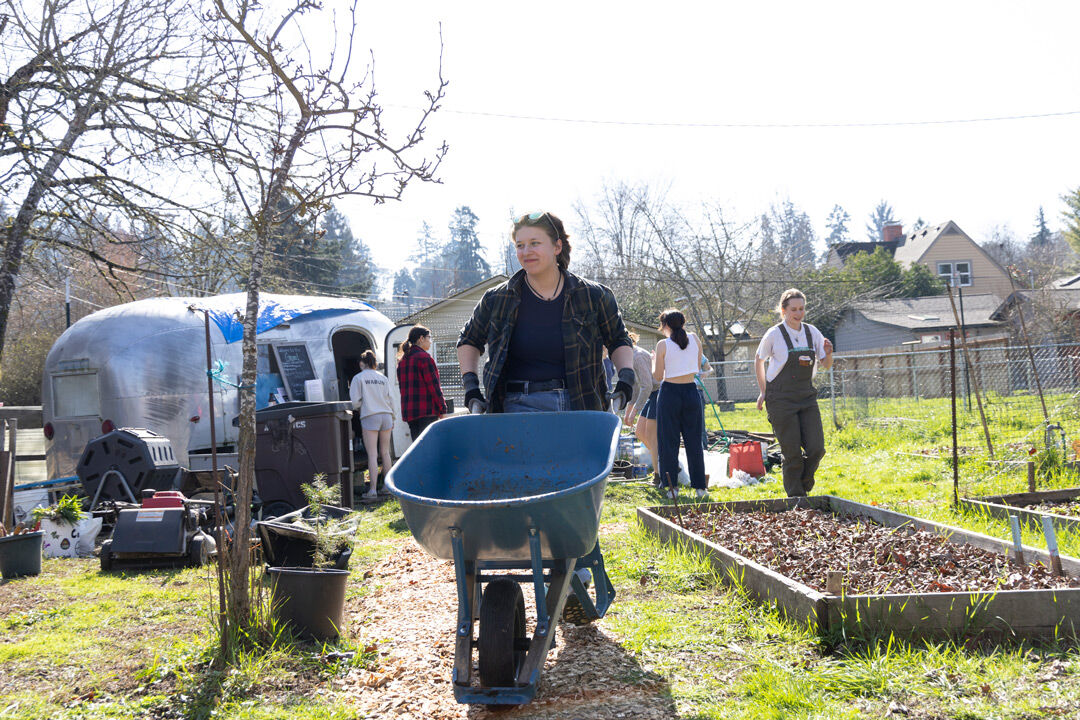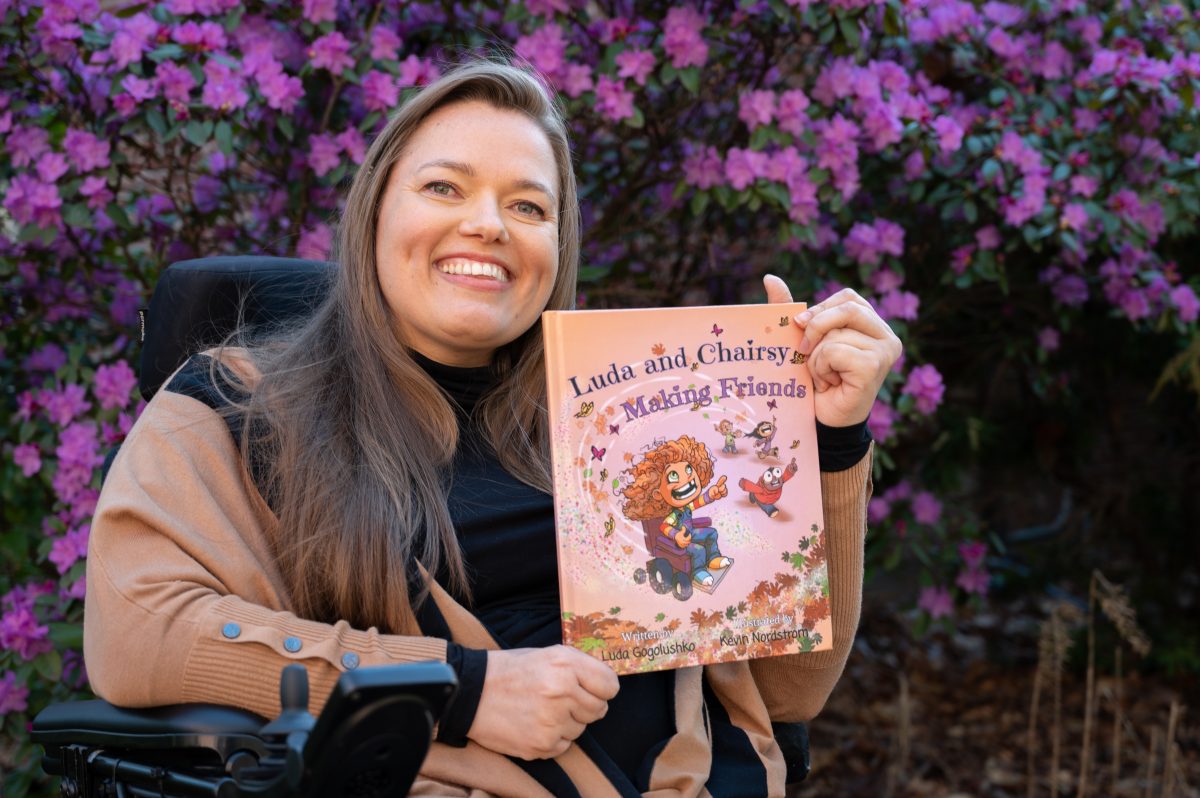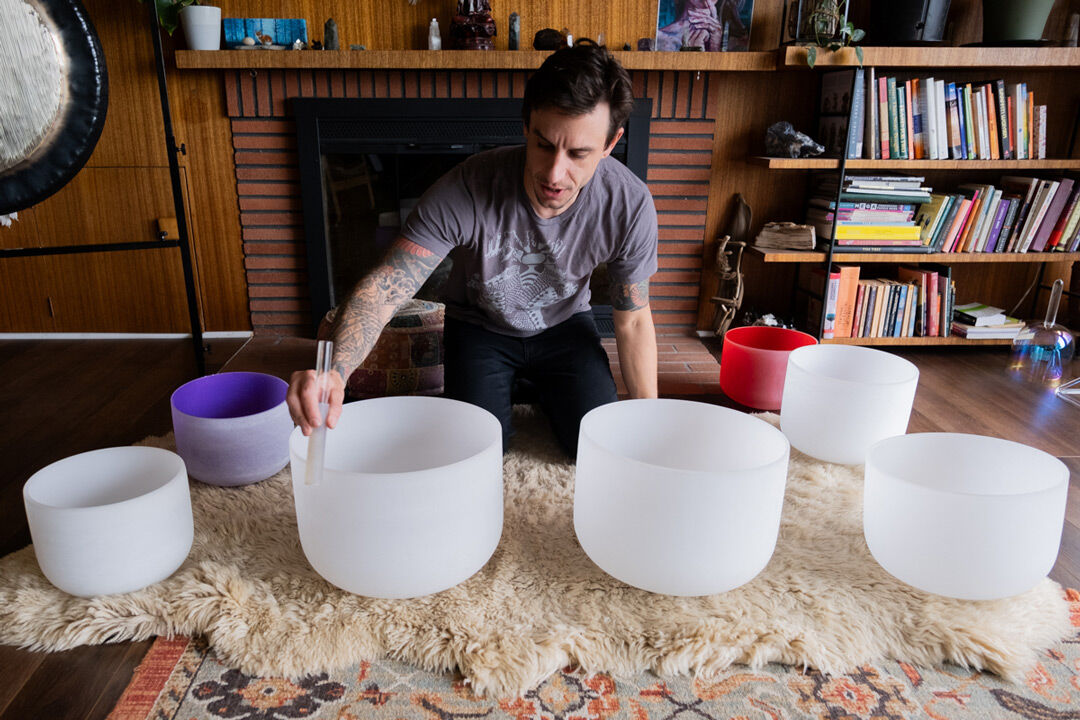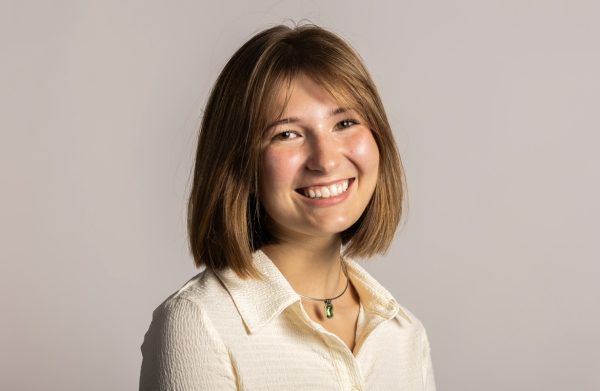The streets of Eugene’s Fairmount neighborhood — situated between the east edge of the University of Oregon’s campus and Hendricks Park — are lined by ornate, expansive houses with rambling front yards. Native shrubs and flowers burst towards the sidewalk, tomato and grape vines dangle with fruit and Little Free Libraries are scattered every few blocks.
The Walnut Street co-op, with its tattered prayer flags and hand-painted sign, fits right in. A faded flag with a picture of the Earth flaps in the wind over a collection of overgrown garden beds which house kale, tomatillos, and a wooden headstone that reads “RIP oligarchy.”
The house, a huge, beautiful home on a corner lot, might resemble the rest of the block, but the co-op’s residents don’t approach housing like their neighbors do. The Walnut Street co-op is an intentional community, a living arrangement in which house members share food, responsibilities, decision-making and common values. In many co-ops, residents share ownership of the property as well, but Walnut Street’s nine residents instead pay a low monthly rent to a corporation in the co-op’s name.
The house’s residents are much more than traditional roommates — they’re brought together by a desire for something deeper.
“We are intending to do things together that shape our shared community culture,” Tom Atlee, an early member of the co-op who has lived there since 2001, said. “We all want to be together in some relational or theoretical way.”
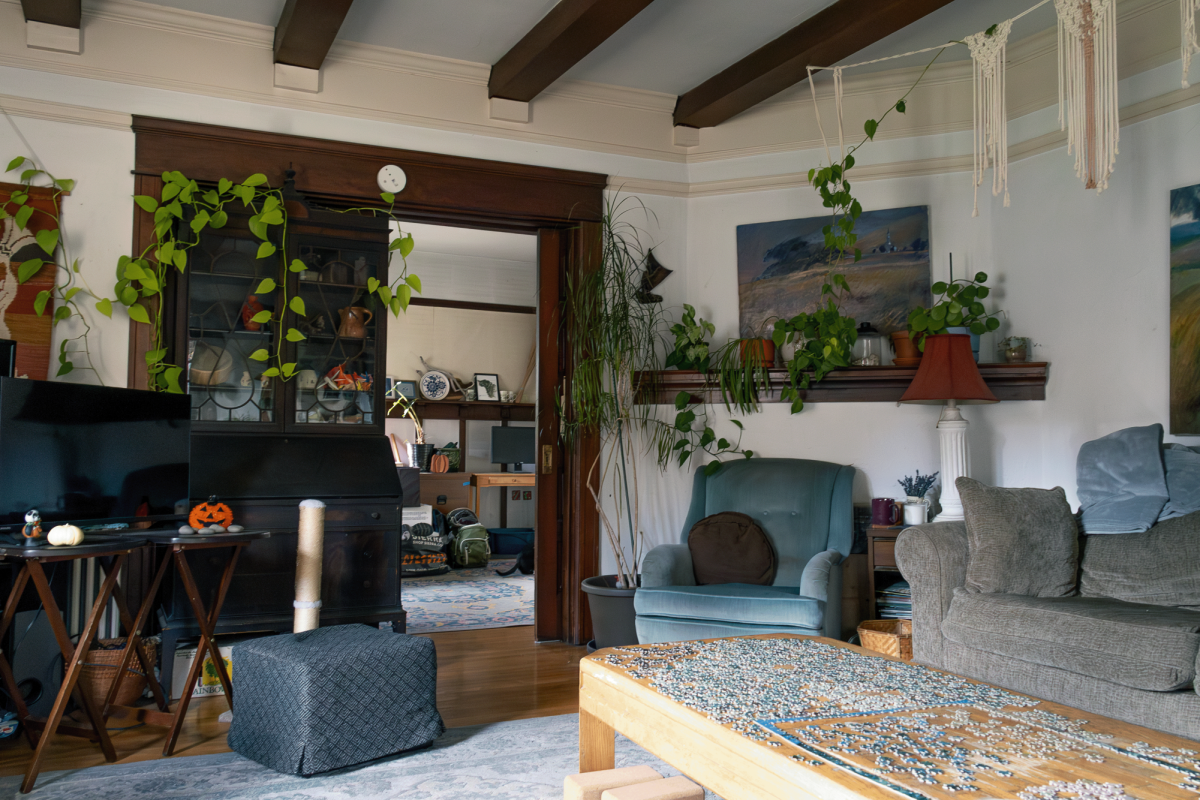
The house’s decoration and layout reflect these values. In the mail room — a hallway overflowing with letters, artwork, books and magazines, an “appreciation wall” hangs on the back of a door. Envelopes brightly labeled with each housemate’s name adorn the space, and passers-by fill them with quick notes of gratitude when the thought strikes.
The living rooms, of which there are three, are decorated with personal art, dozens of plants, stacks upon stacks of books and furniture of sentimental value. One housemate donated a handsome desk that used to belong to his grandmother.
At Walnut Street, residents build community by sharing meals — they cook and eat dinner together four or five nights a week — and by maintaining the house, garden and outside spaces with monthly work parties. They also practice a form of group communication and decision-making called dynamic facilitation, an approach that encourages dialogue between different perspectives and aims for whole-group consensus.
Dynamic facilitation is central to the co-op’s goals and history. The founding members, who were activists and community organizers, met at a dynamic facilitation workshop in Seattle, Washington in 2000.
A wealthy resident who had previously lived in a rural intentional community bought the Fairmount property, and the rooms quickly filled through word-of-mouth in Eugene’s activist networks.
As Atlee describes it, the whole thing happened almost by accident.
“We didn’t collectively decide to work towards making a co-op,” he said. “The chance came along and things fell together — what I was trying to do was spread dynamic facilitation in the activist world, and I sort of grandfathered the co-op into existence without really thinking I was going to do that.”
The house’s demographics have fluctuated over time. While the original members came from activist circles, college students also come and go — at one time they made up half of the house’s membership. At 77, Atlee is the oldest resident.
Slow, who doesn’t use a traditional last name, has lived at Walnut Street off and on for two decades. He runs in dynamic facilitation circles and wanted to try co-op living for years before he got the chance, so it was a natural fit.
At the co-op, he’s continued his interest in dynamic facilitation.
“I pay a lot of attention to the human element,” he says of his role in the co-op, where he takes on mediation and communication responsibilities. His goal is not to eliminate conflict but to move through it effectively: “Peace is conflict done well,” he said.
Slow sees important applications for dynamic facilitation in the broader world, too. In today’s political climate, he sees opportunity for dialogue and growth.
“Where are the cracks and the opportunities for alliances in politics?” he asks. “The activist world is so fractured into electoralists and grassroots people — but what about seeing both?”
Dynamic facilitation drew many co-op members to Walnut Street, especially in the early years, but some residents were simply attracted to the idea of a busy, social living space.
Brex, who belongs to a newer and younger generation of housemates, has lived at the co-op for six months. They landed in Eugene in January after a cross-country move, and Walnut Street is the first co-op they’ve lived in.
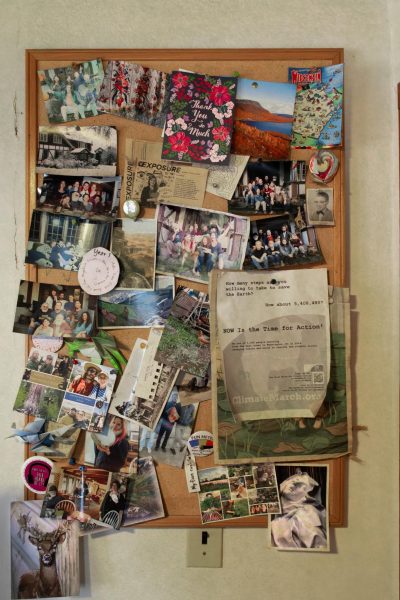
“I was at a crossroads,” they said. “I wanted to experience a different kind of lifestyle and this was the time to do it — to change the trajectory of my life.”
Brex far prefers cohousing to living alone.
“I like the sounds of other humans living — the hustle and bustle.”
They compare it to their first few months in Eugene when they lived in an apartment.
“There’s a reason they don’t call them ‘togetherments,’” they say. “I don’t do well living alone.”
Other residents find it hard to overstate the impact of co-op living on their lives.
“It’s been the most important thing — it’s where I’ve lived for a third of my life,” Atlee said. “I’ve become more humble and less ideological.You change as other things are changing, and you’re just part of the big picture.”
Not everything is rosy all the time — just like any community, the co-op has conflicts.
“It’s just like a relationship, or a family,” Atlee said. “There is tension, and there is conflict — it’s still the real world.”
Slow echoes this sentiment: “I was worried I was being too romantic about it — that once I tried it I’d hate it,” he said. “It is life and there are things that are hard.”
But there are silver linings to conflict, he says, because it allows what he and Atlee call “compassionate accountability.”
The group went through a major upheaval a few years ago in which five people left in the aftermath of a disagreement, and COVID has left a lasting impact on the co-op. The new generation of younger members is enthusiastic about tackling the house’s problems and projects, keeping the spirit alive and moving towards a long future.
“I’m ready to make the space beautiful and functional — for us and for everyone,” Brex said.
The co-pop holds occasional potlucks for friends and neighbors in the summer and the fall, opening its doors to the community and sharing its space and stories.



